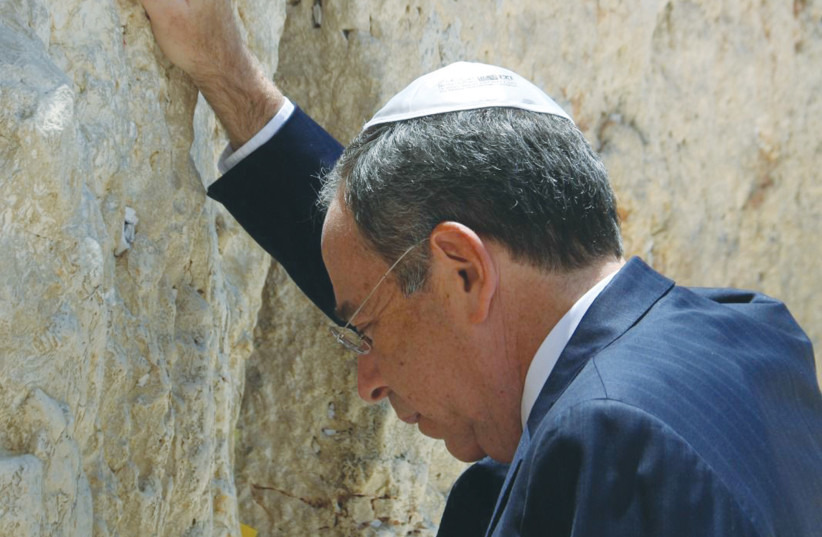Blinken: Israel, Jordan, Egypt, lack envoys due to Senate delays
Senate delays in confirming US Ambassadors harm United States national security, particularly in the Middle East, where key ally countries such as Israel, Jordan and Egypt lack permanent envoys, Secretary of State Antony Blinken warned.
“No one is questioning the qualification of these career diplomats,” said Blinken as he explained that 38 out of 60 State Department nominees have completed all their requirements and need only the senate confirmation so they can take office.
More than a third of those nominees have been waiting for at least a year for their nominations and some have been waiting for longer than 18 months, Blinken said.
The nominations of these critical ambassadors have been “irresponsibly” blocked “for leverage on other issues,” Blinken told reporters on Monday in Washington.
“These delays are harming our national security and they are weakening our ability to deliver for the American people,” Blinken said.
 US Secretary of State Antony Blinken visits the American University in Cairo, Egypt, January 29, 2023. (credit: Mohamed Abd El Ghany/Pool/REUTERS)
US Secretary of State Antony Blinken visits the American University in Cairo, Egypt, January 29, 2023. (credit: Mohamed Abd El Ghany/Pool/REUTERS)No US Ambassador to Egypt for more than a year
He highlighted the situation in the Middle East where Egypt has lacked a US ambassador for over a year and the American envoy posted in Jordan left this week.
The two nominees for those positions — Herro Mustafa Garg to Cairo and Yael Lempert to Amman — have yet to be confirmed.
US Ambassador to Israel Tom Nides has accompanied President Isaac Herzog to Washington and is expected to formally step down on Friday at the end of his trip. His role will be filed by Charge d’Affairs Stephanie L. Hallett until such time as a new Ambassador is nominated and confirmed.
When quizzed about a Nides replacement Blinken said he would get back to reporters about candidates that were about to be nominated.
No timetable available
US State Department spokesman Matthew Miller did not provide a timetable for when such an appointment would be made but noted that in light of the delays, it would take time before any nominee would be confirmed.
“If we had a nominee today, that nominee would still face the same blanket hold” that other nominees are experiencing, he said.
Lebanon will soon be in a similar situation, as its US ambassador Dorothy Shea is slated to be transferred to the United Nations, pending confirmation. Her replacement, nominee Lisa Johnson also has not been confirmed.
Blinken said that while Charge d’Affairs play a valuable role, however, they ultimately can not be a substitute for an ambassador.
Those ambassadors “carry the full weight of the President” and the “Senate. As a result, ambassadors often have greater access and influence .. which they can use to advance the interests of the country.”
The envoy vacuum in Israel, Egypt and Jordan comes as the US works in tandem with officials from all three countries to put a damper on the rising Israeli-Palestinian violence and as it attempts to prevent conflict with Hezbollah on Israel’s northern border.
In the case of Israel in specific, Nides is stepping down precisely at a time of increased tension between Washington and Jerusalem over the judicial overhaul drive and accelerated settlement activity.
The absence of an ambassador falls precisely at a time when Israel is navigating the final months of its application process to join the visa waiver program.
In his conversation with reporters, Blinken blamed the envoy vacuum in specific on Republican Senator Rand Paul, who has held them back in a push to obtain information from the Biden administration on the origins of COVID-19.
Separately, nominations for more than 250 positions in the US military are also being delayed by a single Republican – Senator Tommy Tuberville.
Tuberville began the holds in March to protest a Defense Department policy that provides paid leave and reimburses costs for services members who travel to get an abortion.
Most nominations are approved by Senate committees and eventually reviewed by the full Senate, which is controlled by Biden’s fellow Democrats. However, while confirmation for career diplomats to State Department positions and most military promotions are usually routine, a single senator can pause the process by putting a hold on nominations that force them to be considered one at a time, taking many hours each.
Reuters contributed to this report.





Comments are closed.